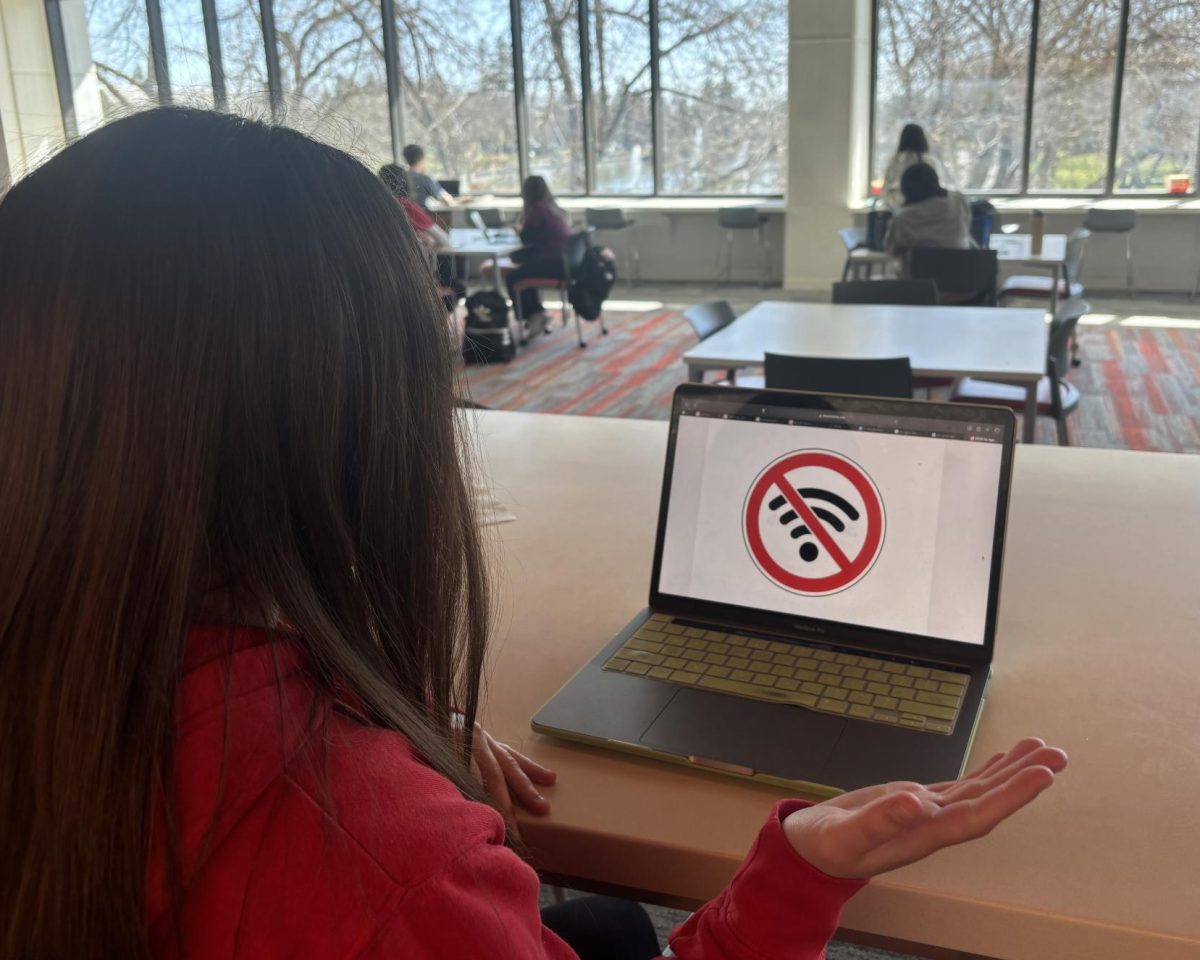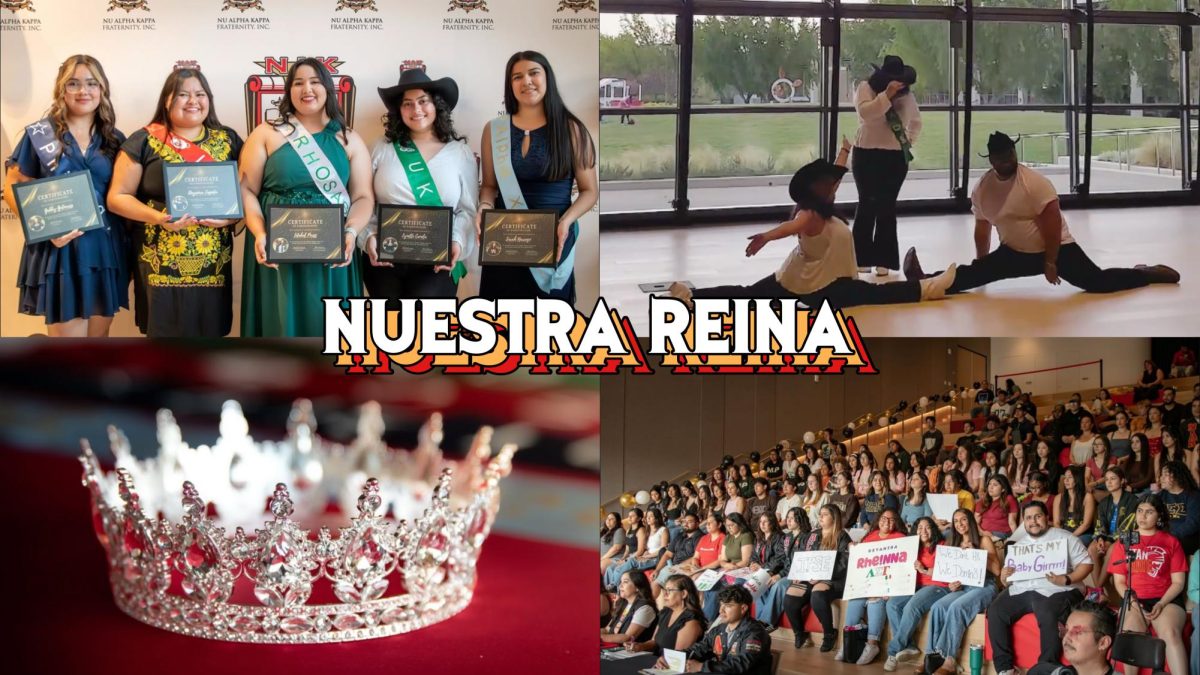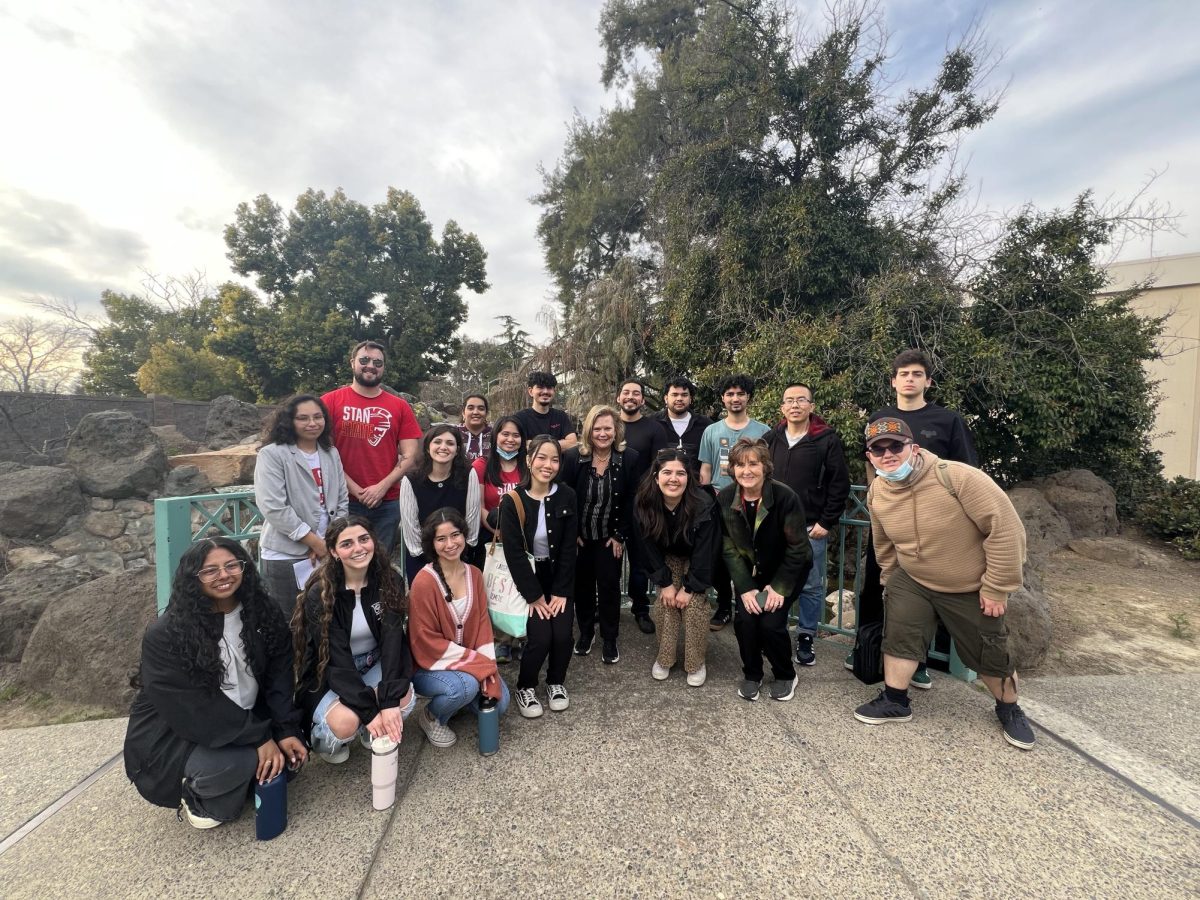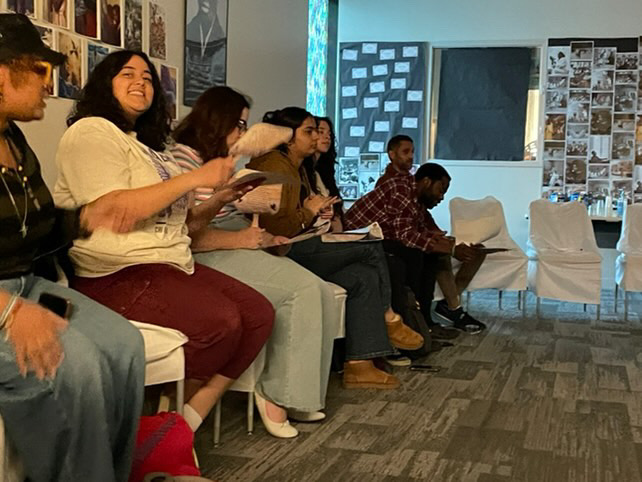Last week the Social Justice in the Central Valley: A Community Focused Conference was held at California State University, Stanislaus (Stan State). The program was held three different nights and had events happening throughout the day. The conference consisted of many different speakers from different backgrounds focusing on the need for change in the communities.
One of the final programs was held on Thursday night and featured playwright Milcha Sanchez-Scott and spoken word artist Ariana Brown.
Many students came for different reasons; some were inspired by other conference programs they had attended throughout the three days.
Monseratt Sanchez Medina (freshman, English) was one who came out of curiosity.
“I just wanted to come here for fun because the playwright Milcha Sanchez-Scott- she actually spoke in our theatre class,” Sanchez Medina said.
“And I was very interested, so I was like I’ll come later on and see what else she has to say. Also my ethnic studies teacher said ‘if you guys are going to come this evening I recommend that you guys go see Ariana Brown’, which is the speaker following Sanchez-Scott,” Sanchez Medina said.
Sanchez Medina also came to other events during the week to see Yosimar Reyes and the following keynote program that featured John DeCure and a few other speakers. She expressed how impressed she was with the events.
“I’ve liked it and I thought it was really interesting, you know I’m a freshman so it’s really interesting to have these kind of topics brought forth,” Sanchez Medina said.
“John DeCure was taking about the differences between raises or culture or socioeconomic status within the communities and how it relates to the law so I found that really interesting because you can see that there are people who are deprived of their rights.”
Milcha Sanchez-Scott presented her play to the crowd titled Roosters, which will be shown at Stan State Nov. 9-19. The play was inspired from her experience as an immigrant as a young child. She spoke of her life, growing up and the experiences that shaped her.
The night came to a close with the poetic words of Ariana Brown, who reflected on social justice issues within her culture of being a Mexican-African American. She too shared stories from experience that changed her and expressed soul through her spoken art.
Though the night had a heaviness to it, there was light with sprinkles of humor.
The night added a sense of connection for many students.
Josye Ramirez (senior, Liberal Studies) found the event to be insightful.
“[The speakers] talked about topics we don’t necessarily talk about or bring to light, so a lot of discrimination against minorities. So it was really good to see that and [their] experience with it,” Ramirez said.
Ramirez connected with ideas that the playwright Milcha Sanchez-Scott brought to the audience about growing up as an immigrant.
“When she was talking about her experiences as a child and being discriminated, I thought that it’s really true that at a young age it does start,” she said.
“As we get older [discrimination] tends to become second nature, so we don’t really think about it anymore. So for her to share that, it’s true. As young minorities or people of color we do experience stuff like that and it’s not brought to light.”
Another student, Oyuki Angel (senior, Liberal Studies), found what the speakers said to be relatable. Ariana Brown’s performance was one she loved but also admired Milcha Sanchez-Scott’s.
“I enjoyed when she spoke about how she got to work in the fields. My parents work in the fields, so when she was taking about how there is a lot of gossip and how it was fun for her but it’s really backbreaking for them, I was like, it’s true, it’s so hard,” Angel said.
“I’m lucky I don’t have to do it, you know but my parents always told me if you go to school, you don’t have to work here. That’s something that would motivate me to be here. So I’m really excited for the play.”
Dr. James Tuedio, Dean of the College of the Arts, Humanities and Social Sciences, assisted with the arrangement of the event and was excited about the overall outcome.
“[The three days] went fantastic, some of it was pretty heavy. There is some pretty dramatic stuff that goes on that is not so apparent to people but when you get some people speaking about it who are in the trenches dealing with it, it really comes to life,” Dr. Tuedio said.
Dr. Tuedio saw the events as a great opportunity for those who attended to learn how to become involved in social justice work. He expressed how connections were formed with those doing social justice work and that it created a great platform for students to start getting involved.
“A lot of these problems feel really hopelessly hard to deal with until you realize there is little pockets of work that we can all do, it starts adding together and pretty soon you start changing the whole chemistry and climate of a community,” he said.
“Part of that is just calling things out in the open, making it so you can’t hide from what is happening. That’s what happen a lot over these three days.”
He presented a theme that spread throughout all of the events and that was getting those suffering the encouragement to speak out and raise awareness.
“It’s so important to remember that it’s not all a burden. And I think learning to also recognize the importance of the people who have the issues need to be apart of the leadership that addresses the issues,” he said.
“That was a huge theme across a lot of the presentations, that we need to keep working on how you get the people in the mists of a problems helping to define what the problems really are and what they really look like and how things can be done.”
Dr. Tuedio encourages people to get involved in their communities and believed there is importance in us all coming together to make a change.
If you missed any of the weeks performances, recorded videos of the event will be posted on the Social Justice Conference website.
Categories:
The impact of social justice conference week
Aubrie Barr
•
November 14, 2017
0
More to Discover











